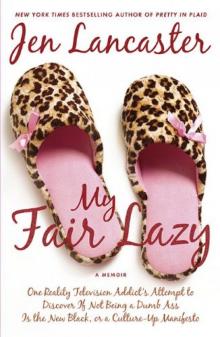 My Fair Lazy: One Reality Television Addict's Attempt to Discover
My Fair Lazy: One Reality Television Addict's Attempt to Discover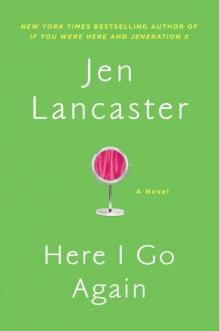 Here I Go Again: A Novel
Here I Go Again: A Novel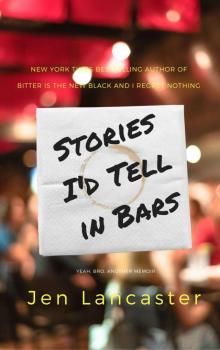 Stories I'd Tell in Bars
Stories I'd Tell in Bars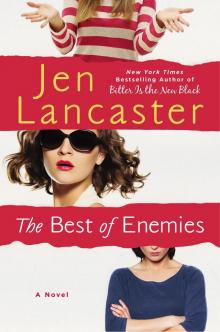 The Best of Enemies
The Best of Enemies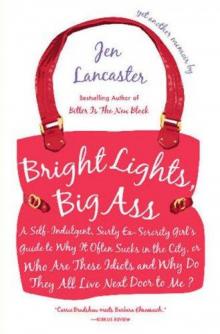 Bright Lights, Big Ass
Bright Lights, Big Ass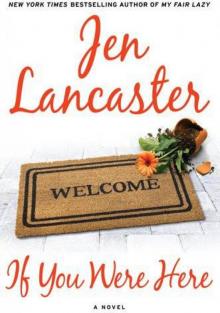 If You Were Here
If You Were Here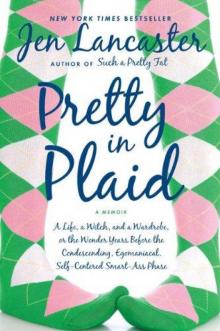 Pretty in Plaid: A Life, A Witch, and a Wardrobe
Pretty in Plaid: A Life, A Witch, and a Wardrobe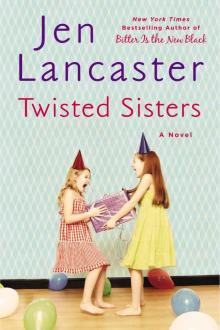 Twisted Sisters
Twisted Sisters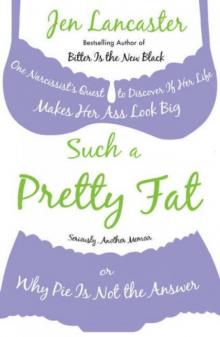 Such a pretty fat: one narcissist's quest to discover if her life makes her ass look big
Such a pretty fat: one narcissist's quest to discover if her life makes her ass look big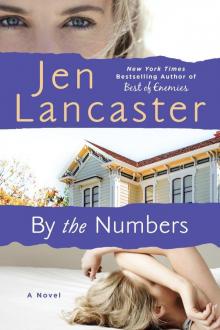 By the Numbers
By the Numbers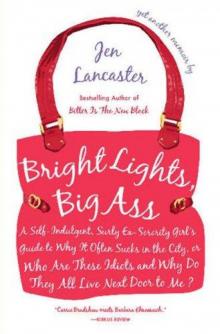 Bright Lights, Big Ass: A Self-Indulgent, Surly, Ex-Sorority Girl's Guide to Why it Often Sucks in theCity, or Who are These Idiots and Why Do They All Live Next Door to Me?
Bright Lights, Big Ass: A Self-Indulgent, Surly, Ex-Sorority Girl's Guide to Why it Often Sucks in theCity, or Who are These Idiots and Why Do They All Live Next Door to Me?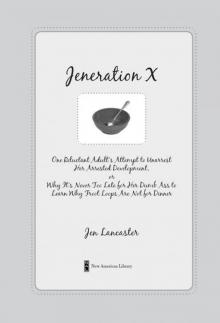 Jeneration X: One Reluctant Adult's Attempt to Unarrest Her Arrested Development
Jeneration X: One Reluctant Adult's Attempt to Unarrest Her Arrested Development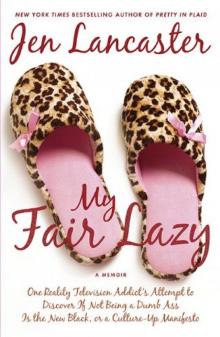 My Fair Lazy: One Reality Television Addict's Attempt to Discover If Not Being A Dumb Ass Is the New Black, or, a Culture-Up Manifesto
My Fair Lazy: One Reality Television Addict's Attempt to Discover If Not Being A Dumb Ass Is the New Black, or, a Culture-Up Manifesto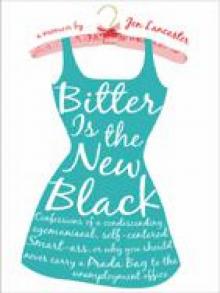 Bitter is the New Black
Bitter is the New Black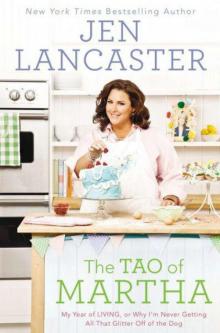 The Tao of Martha: My Year of LIVING
The Tao of Martha: My Year of LIVING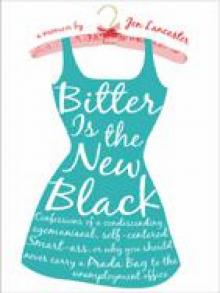 Bitter is the New Black : Confessions of a Condescending, Egomaniacal, Self-Centered Smartass,Or, Why You Should Never Carry A Prada Bag to the Unemployment Office
Bitter is the New Black : Confessions of a Condescending, Egomaniacal, Self-Centered Smartass,Or, Why You Should Never Carry A Prada Bag to the Unemployment Office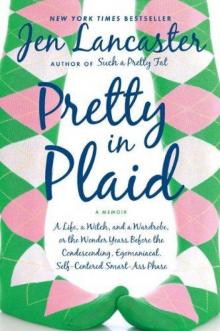 Pretty in Plaid: A Life, A Witch, and a Wardrobe, or, the Wonder Years Before the Condescending,Egomaniacal, Self-Centered Smart-Ass Phase
Pretty in Plaid: A Life, A Witch, and a Wardrobe, or, the Wonder Years Before the Condescending,Egomaniacal, Self-Centered Smart-Ass Phase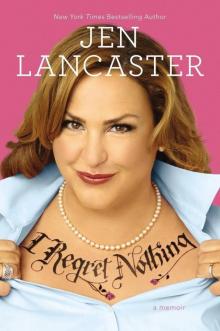 I Regret Nothing: A Memoir
I Regret Nothing: A Memoir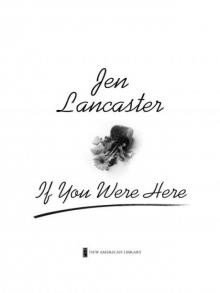 If You Were Here: A Novel
If You Were Here: A Novel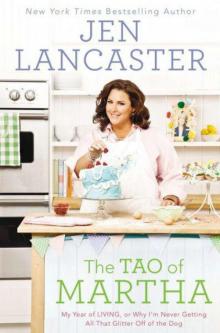 The Tao of Martha: My Year of LIVING; Or, Why I'm Never Getting All That Glitter Off of the Dog
The Tao of Martha: My Year of LIVING; Or, Why I'm Never Getting All That Glitter Off of the Dog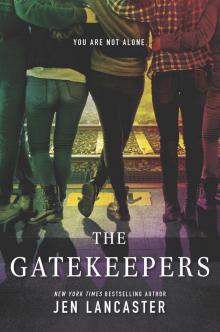 The Gatekeepers
The Gatekeepers My Fair Lazy: One Reality Television Addict's Attempt to Discover
My Fair Lazy: One Reality Television Addict's Attempt to Discover Here I Go Again: A Novel
Here I Go Again: A Novel Stories I'd Tell in Bars
Stories I'd Tell in Bars The Best of Enemies
The Best of Enemies Bright Lights, Big Ass
Bright Lights, Big Ass If You Were Here
If You Were Here Pretty in Plaid: A Life, A Witch, and a Wardrobe
Pretty in Plaid: A Life, A Witch, and a Wardrobe Twisted Sisters
Twisted Sisters Such a pretty fat: one narcissist's quest to discover if her life makes her ass look big
Such a pretty fat: one narcissist's quest to discover if her life makes her ass look big By the Numbers
By the Numbers Bright Lights, Big Ass: A Self-Indulgent, Surly, Ex-Sorority Girl's Guide to Why it Often Sucks in theCity, or Who are These Idiots and Why Do They All Live Next Door to Me?
Bright Lights, Big Ass: A Self-Indulgent, Surly, Ex-Sorority Girl's Guide to Why it Often Sucks in theCity, or Who are These Idiots and Why Do They All Live Next Door to Me? Jeneration X: One Reluctant Adult's Attempt to Unarrest Her Arrested Development
Jeneration X: One Reluctant Adult's Attempt to Unarrest Her Arrested Development My Fair Lazy: One Reality Television Addict's Attempt to Discover If Not Being A Dumb Ass Is the New Black, or, a Culture-Up Manifesto
My Fair Lazy: One Reality Television Addict's Attempt to Discover If Not Being A Dumb Ass Is the New Black, or, a Culture-Up Manifesto Bitter is the New Black
Bitter is the New Black The Tao of Martha: My Year of LIVING
The Tao of Martha: My Year of LIVING Bitter is the New Black : Confessions of a Condescending, Egomaniacal, Self-Centered Smartass,Or, Why You Should Never Carry A Prada Bag to the Unemployment Office
Bitter is the New Black : Confessions of a Condescending, Egomaniacal, Self-Centered Smartass,Or, Why You Should Never Carry A Prada Bag to the Unemployment Office Pretty in Plaid: A Life, A Witch, and a Wardrobe, or, the Wonder Years Before the Condescending,Egomaniacal, Self-Centered Smart-Ass Phase
Pretty in Plaid: A Life, A Witch, and a Wardrobe, or, the Wonder Years Before the Condescending,Egomaniacal, Self-Centered Smart-Ass Phase I Regret Nothing: A Memoir
I Regret Nothing: A Memoir If You Were Here: A Novel
If You Were Here: A Novel The Tao of Martha: My Year of LIVING; Or, Why I'm Never Getting All That Glitter Off of the Dog
The Tao of Martha: My Year of LIVING; Or, Why I'm Never Getting All That Glitter Off of the Dog The Gatekeepers
The Gatekeepers